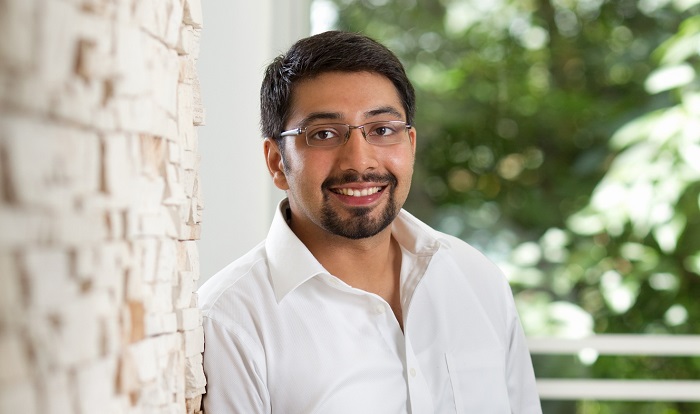From Mumbai to Dubai via Hong Kong and Geneva: how I globalised my banking career

Media Coverage by eFinancialCareers:
Six years ago Vikas Sharma had a burning ambition. He’d already become a successful banker in his home country, India, but he now wanted to take his career global and work in some of the world’s leading financial centres.
“I was in Mumbai dealing with hedge funds in Hong Kong and Singapore, but I was seeking more direct exposure to global markets,” says Sharma, who was working on the institutional desk at Indian investment bank ENAM at the time. “So I wanted to relocate to a global city like Hong Kong.”
Rather than apply for global banking jobs while still in India, Sharma took a longer but ultimately more beneficial route: he decided to move countries and complete an internationally-focused MBA.
“I reasoned that I’d have a much better chance of building a global career in banking if I had a global qualification under my belt,” explains Sharma.
After considering several business schools across Asia and Europe, Sharma enrolled in the MBA programme at the Chinese University of Hong Kong. “I was impressed at the unique way the CUHK MBA combines cutting-edge research from both the West and emerging markets. That helps make the course content more global than other MBAs,” he says.
“Having studied engineering as an undergraduate, I also wanted formal training to develop my financial skills. Several of my hedge fund clients said the CUHK MBA was top-tier for people wanting to work in international finance,” he adds.
Students at CUHK can, for example, select finance as a ‘concentration option’ and tailor their degree to focus on corporate finance, investment, banking systems, and the Asia Pacific money market.
Sharma says the MBA gave him broader and deeper technical expertise, but he was equally impressed by how effectively it improved his softer skills. “If you want to work in an international environment in finance, the ability to be culturally sensitive is just as crucial as knowing the numbers. Banking is a human business.”
This is all the more important when you’re leading international teams because your success depends on “navigating and adapting to differences”, says Sharma, who rose up the ranks in international banking after graduating from CUHK and is currently a director at UBS in Dubai.
The leadership development course in CUHK’s MBA programme emphasises the need to adjust your management style to meet the needs of individual team members. And this flexible approach is also infused throughout the degree.
When working with classmates in small case study groups Sharma got a “first-hand understanding of how to be flexible and deal with culture differences in global teams”. “My class was diverse. There were people from China, Germany and Canada, for example, in industries from finance to consulting to semiconductors.”
Being placed in teams of people from across the world also means “there’s a broad range of opinions when you’re discussing business problems”, says Sharma. “If everyone were from the same country or industry, I wouldn’t have identified the blind spots in my knowledge.”
Sharma has now successfully put his cross-cultural skills to use in three markets, starting with a summer internship at HSBC’s global banking team, which he completed in 2012 while at CUHK.
“CUHK gives you the option of adding an internship to your MBA – it’s a way of immediately applying your class learnings on the job. I was working in a more international workplace than ever before and interacting with colleagues from Hong Kong and many different countries,” he says.
Sharma launched his international career full-time shortly after he graduated from CUHK. He attended a recruitment day for MBA students at Credit Suisse in Hong Kong, but the job he got as a result saw him relocate to the bank’s headquarters in Zurich, Switzerland, in 2013.
“My team was very international – I hired people from Spain, China, Russia,” says Sharma of his time as a manager in high-net-worth banking at Credit Suisse. “Because of my CUHK learnings, I provided individual leadership for each person, making sure they took ownership of their objectives.”
He also adjusted well to working in Switzerland. “Time is crucial there – you can never be late to a meeting. And Swiss people are typically direct and precise in their communication style, while in Hong Kong you have to read between the lines more.”
Last year Sharma moved again, this time to Dubai to join UBS as a director in investment management, where he serves family offices, entrepreneurs and corporates across the gulf region.
“About 170 nationalities live in Dubai – people from Kenya, Tanzania and Bahrain, for example – it’s a real melting pot,” says Sharma. “So just like at CUHK, the more adaptable and culturally sensitive you are, the better. As a banker here, you must learn how to be subtle and less upfront in communicating with both clients and colleagues.”
“I’m a 30-something banker who often meets 50-something CEOs in the Middle East, so I have to use my communication skills to ensure I’m on the same wave length and can gain their trust to take projects from origination to execution,” he adds. “The CUHK MBA helped me to get to this stage in my career. And it helped me realise my ambition to live and work across the world as a banker.”
Media: eFinancialCareers
Section: News
Date published: September 6, 2017

